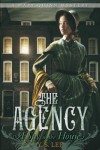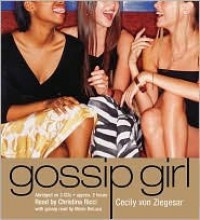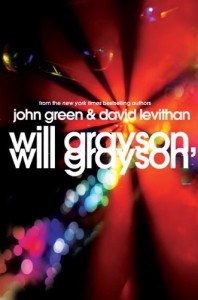So Flavorwire did a post called 50 Sexy Books To Get You In The Mood (For Valentine's Day) which didn't actually include any romance novels on it. Also it features Lolita but Ceilidhann already did a great post about it for Bibliodaze.
What is pissing me off, still, is the inclusion of Clan of the Cave Bear by Jean M. Auel. Here's what they said about it on its entry:
The first book in Auel’s legendary series about the lives of prehistoric humans. Read: Cro-Magnon love lives as written by a Mensa member. A must for anyone on the Paleo diet.
But here's the thing: while as the series progresses the books get more emphasis on the porn end of the "anthropology porn" feel (thanks to the arrival of Jondalar's penis) the first book isn't romantic and sexy.
In fact, it is a major part of a plot that a man who hates the protagonist starts to rape her as a means of asserting his dominance. Also, she is TEN at the time this starts, and ELEVEN when she gives birth.
So according to this list: raping a child = sexy, but romance novels with consenting adults isn't. Wonderful.
So...
I mentioned my disappointment earlier that the new Buzzfeed Books section would be negative review free here, and how if I weren't a total technological numpty, I would do my own site.
If I were to do so, who would be interested in reading it and who would be interested in writing for it?
It wouldn't be a copycat of Buzzfeed. It would be something with the irreverence and joyful silliness of Buzzfeed but also with a more serious and analytical edge. Something where you could get news, views, reviews, lists, and the like, something akin to Flavorwire but with an exclusively literary focus. A site dedicated to the literature of the world, both originally in English and translated, and a dedication to full diversity in terms of gender, sexuality, race, class, ability, and so on. A place where solid criticism is encouraged as much as enthusiastic praise.
I may just be talking out of my arse right now but I'm putting the word out there. Anyone interested?
P.C. Cast, The R Word and That Big Hole She Keeps Digging.
"Ableism should be stamped out of our culture. There's no excuse for using a term like the R word to shame someone. Yes, the meanings of words change but the R word has not changed meanings. No matter how many times you try to justify your use of the word, claiming you didn't mean to be offensive or ableist so it doesn't count, or crying censorship when you're asked not to use it, that word is still a disgusting slur against the disabled.
...
If P.C. Cast is too immature and selfish to understand the hurt she causes with use of the R word (and "fucktard" because the suffix -tard clearly has the same implications), she really shouldn't be writing. Her editors need to step in and tell her to get a grip."
Read more at The Book Lantern and spread the word! Stamp out ableism in YA!
Review: The Bone Tiki

To mangle a line from the movie Zoolander, New Zealand is very hot right now. Our actors and actresses are on the big and small screens in the US, and our directors making waves with giant blockbusters and indie darlings. And, of course, New Zealand has produced a number of amazing authors and stories – many of which, unfortunately, don’t seem to be as well-known as they deserve to be.
While a number of these fantastic stories are more European in their fantasies, David Hair’s The Bone Tiki makes use of New Zealand’s rich cultural heritages to create something that – in a YA fantasy/paranormal market dominated by creatures such as vampires, weres/shapeshifters and Celtic fae – comes across as feeling very fresh and new. The ghost world – referred to in text as Aotearoa – is a brilliant concept, an amazing blend of magic and New Zealand’s history, and that historical presence made what would have been a very boring and short (New Zealand: It’s not very big.) journey part of a quest – it takes a lot longer to get somewhere if you’re stuck in a time where your mode of transport is horse and carriage, not a car.
Protagonist Matiu (Mat) is a delight to read; his internal conflict about coming to terms with who he is, especially with regards to his dual heritage, and his journey to learn more about where he comes from. His relationship and interactions with Kelly and Wiri are also a delight to read, while Kelly and Wiri stand strong as characters – Wiri especially, with the background I cannot give for fear of spoilers, is an interesting character. The Bone Tiki would be seriously lacking something if he were any different from the way he is. While the villains come across as a little flat at times (but are still most definitely menacing), Matiu and his friends come across as vivid and powerful.
One minor quibble I did have is the lack of a glossary in the back of the book. While I was already familiar with the majority of words (and was able to remember the rest, as explanations were also given in text), other readers obviously might not be. Terms and situations are explained in the text itself, but the ability to flick to the back and be reminded of meanings forgotten or confused would still be something highly valued. The Bone Tiki‘s sequel, The Taniwha’s Tear does remedy this situation, but it is still something that must be noted.
If you are looking for something that is a little bit different from the current trends of YA fantasy, and if you can get your hands on a copy, definitely check out The Bone Tiki. It’s fun, it’s fresh, and it earns itself four and a half stars from me.
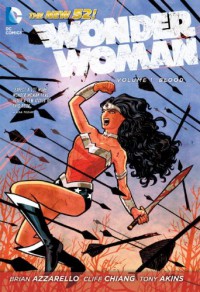 It gets a star for Cliff Chiang's art. Not a fan of some of the character designs, but the art is pretty.
It gets a star for Cliff Chiang's art. Not a fan of some of the character designs, but the art is pretty.
 Best stories: "Things To Know About Being Dead" by Genevieve Valentine, "The List of Definite Endings" by Kaaron Warren, "Best Friends Forever" by Cecil Castellucci, "Transition" by Melissa Marr, "Vampire Weather" by Garth Nix and "Sit the Dead" by Jeffrey Ford.
Best stories: "Things To Know About Being Dead" by Genevieve Valentine, "The List of Definite Endings" by Kaaron Warren, "Best Friends Forever" by Cecil Castellucci, "Transition" by Melissa Marr, "Vampire Weather" by Garth Nix and "Sit the Dead" by Jeffrey Ford.
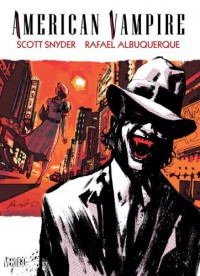 Brief comment: I've always preferred Pearl's sections to Skinner's, so the second trade having more Skinner made it not as enjoyable for me as the first.
Brief comment: I've always preferred Pearl's sections to Skinner's, so the second trade having more Skinner made it not as enjoyable for me as the first.
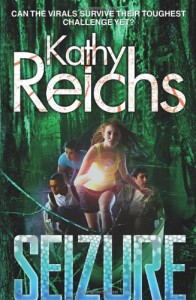 2.5ish. would have been at least 3.5 if it didn't suffer from "all the female characters besides the protagonist are either dump, mean or evil" syndrome.Seriously, only one was Tempe and she was only in one phone call.
2.5ish. would have been at least 3.5 if it didn't suffer from "all the female characters besides the protagonist are either dump, mean or evil" syndrome.Seriously, only one was Tempe and she was only in one phone call.
 Before reading Wicked Lovely, my experience with fairy/faerie/fae fiction was very limited: unless, like Claudine/Claude and their ilk in the Sookie Stackhouse books, they popped up in books from other (urban) fantasy books or are in the movie Labyrinth I tended to avoid them. But after hearing many good things about Wicked Lovely I decided to give it a go.
Before reading Wicked Lovely, my experience with fairy/faerie/fae fiction was very limited: unless, like Claudine/Claude and their ilk in the Sookie Stackhouse books, they popped up in books from other (urban) fantasy books or are in the movie Labyrinth I tended to avoid them. But after hearing many good things about Wicked Lovely I decided to give it a go.I'm glad I did.
One of the big things I love about Wicked Lovely is the obvious effort Marr has put into her research and her world-building. Each chapter begins with an epigraph from reference books about fairy mythology which ties in somewhat to the chapter it belongs to. Both the human world and each of the faerie Courts are fully-realised. The in-story mythos is strong and in place, and the rules of the created canon are stuck to. This is always a very good thing in fantasy, and where a lot of fantasy falls short these days. Some authors seem to think that fantasy doesn't require research or rules - thankfully Marr is not one of these authors, and her positive attitude towards research and in-universe rules shows through in her story.
The characters too, are fully-realised, too, with the exception of the Winter Queen. Someone else (I forget who) mentioned that she seemed too much like a stock villain, too full of cliches. I have to partially agree with that - she seemed like she was trying too hard, and that she was written in a way that expressed it not to be a character issue but more a mild reflection on the author's skill of handling her. But apart from her, the characters were all vibrant and interesting, and definitely with more than one note. Seth is probably the hallmark of that attitude, as, given the way he looks and where he lives, one could easily write him off and turn him into a stereotype. Not Marr though: she handles him well. He's complex and interesting and I'm not surprised he is a favourite amongst many female readers. He could easily have been portrayed in the way his exterior might have others do so but no. So well done on that, Marr.
My favourite thing about Wicked Lovely is the theme of choice, and Marr's understanding of it. Choice is evident right from the prologue and stays right until the end. From one's role in life to who you love, choice is woven throughout the novel and is an important part of the plot. One thing I loved most about choice in Wicked Lovely is the understanding to not make a choice is in fact a choice itself. That is something that is often looked over, so well done there.
Wicked Lovely is a fast-paced novel with a fully-realised world full of wonderful characters. The writing is clean and true, and wonderfully evocative without having to resort into the depths of purple prose. The story will keep you hooked and wanting more. So go on and read Ink Exchange... we all have a while to wait until Fragile Eternity comes out.
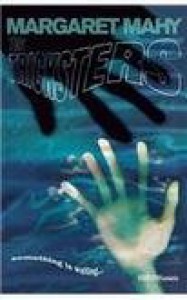 When you ask me about my favourite books, The Tricksters will always feature on the list, be it about New Zealand books, or books in general. It's been, oh, more than ten years since I first read The Tricksters and in my mind one of the marks of a good book is whether or not it stays with you and stands the test of time.
When you ask me about my favourite books, The Tricksters will always feature on the list, be it about New Zealand books, or books in general. It's been, oh, more than ten years since I first read The Tricksters and in my mind one of the marks of a good book is whether or not it stays with you and stands the test of time.The Tricksters most certainly fits that description.
Margaret Mahy is one of New Zealand's most famous authors, and The Tricksters shows why she is so amazing and worth the praise and status she has received (and in my opinion, she deserves more): the language is beautiful and evocative without becoming purple - unless you count the purple prose in the torrid romance novel the main character Harry (whose real name is "Ariadne") is writing at the start of the novel, of course - and, of course, the characters are real and vibrant and practically leap off the page. The relationships between characters are wonderful to watch, especially that between Harry and the third Carnival brother, Felix - it is full of the mystery, excitement and chaos of first love.
While fantasy creeps in around the edges, this is a book about reality if anything else. It is about secrets, yours and other peoples, between family and between friends. It is about growing up and growing into yourself, becoming aware of your own sexuality and becoming okay with it - not to mention first love. It is about family and friends, and what can cause people to grow closer as well as tear them apart.
When I was a young girl this book spoke to me, especially the transformation of Harry - a character I could identify with, and I think a lot of girls will - from start to finish. The sprinklings of myth and fantasy throughout the book add another layer to the whole story, and paves the way for an ending you won't see coming.
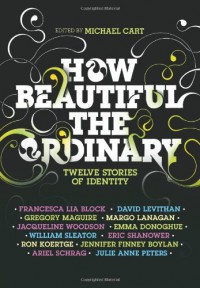 About a 3 and a half. Would have been a 4 if the bi-erasure in one of the stories hadn't peeved me off so much. This should not have come as such a surprise when re-reading the introduction: "This collection contains stories by twelve of our finest authors for young adults, writing about what it might mean to be gay, lesbian, or transgender." Nowhere in the entire book is "bisexual(ality)" ever mentioned.
About a 3 and a half. Would have been a 4 if the bi-erasure in one of the stories hadn't peeved me off so much. This should not have come as such a surprise when re-reading the introduction: "This collection contains stories by twelve of our finest authors for young adults, writing about what it might mean to be gay, lesbian, or transgender." Nowhere in the entire book is "bisexual(ality)" ever mentioned.
 The first thing that comes to my mind when I try to describe The Graveyard Book is "interesting format". Instead of being a continuous tale over a shortish period of time broken up into chapters, The Graveyard Book is a series of short stories, with each telling a tale from a different period in Bod's life amongst the dead of the Graveyard.
The first thing that comes to my mind when I try to describe The Graveyard Book is "interesting format". Instead of being a continuous tale over a shortish period of time broken up into chapters, The Graveyard Book is a series of short stories, with each telling a tale from a different period in Bod's life amongst the dead of the Graveyard.Each of these stories is both open and closed, and this is one of the book's greatest strengths. Each adventure/tale is complete, but when pieced together the short stories tell the whole tale. In a way it is like being shown a photo album of a person's life and being told the story accompanying each - there are still blanks, but the feel and the major events are still there. In other cases this format might not work, but Gaiman handles it beautifully and the format becomes an asset, and not a problem.
Like with the other Gaiman stories I have read, the characters of The Graveyard Book definitely make the story. Each one of them has their own little quirks and ideals, and it was interesting to watch how Bod's relationship with them changed as he grew old - and they, being dead, did not. I found myself wishing for more information about these characters because of little glimpses of who they were and what they were doing (like the young couple who died several decades apart and are now stepping out together) but the way it was handled it was enough at the same time. As Bod grew up, so did his view - and thus ours - of the different characters changed, which was a pleasant thing to see. From the Owenses, to Silas to Miss Lupescu to Liza Hempstock and to the rest of the dead society, each are portrayed as different, interesting and unique people, and overall I loved the concept of a community within a graveyard.
For those of you who like interesting, quirky and Gaiman-y type tales with characters that belong in that world, then the collection of stories inside The Graveyard Book will definitely appeal.
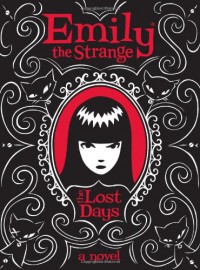 Emily the Strange is a strange little girl, and Emily the Strange: The Lost Days is a strange little novel. It is the first in a series about Emily, her four cats and the many other weird and wonderful people she encounters in her adventures.
Emily the Strange is a strange little girl, and Emily the Strange: The Lost Days is a strange little novel. It is the first in a series about Emily, her four cats and the many other weird and wonderful people she encounters in her adventures.Thirteen things I have to say about Emily the Strange: The Lost Days:
1. Apart from seeing her a handful of times on t-shirts and the like, this was my first real encounter with Emily the Strange. So I went into this blind, not knowing anything more than “she’s on t-shirts and according to this blurb she has four cats”.
2. Emily the Strange: The Lost Days is written in a diary format, not with specific dates attached (e.g. Monday, 4th of March) but rather counting the days since the story – and Emily’s journey towards finding out who she is and why she is where she is – begins. Time skips are mostly just given as “later” rather than being specific. Sometimes this made it a bit confusing to remember what day it was or how long the story had been going on, but it was easy enough to pick up on as I kept reading.
3. Because of the nature of the plot and Emily’s amnesia, the opening of the novel is both a beginning and a middle, but without the relevant back story to make that visible. Everything (and I do mean everything) we learn through-out the course of The Lost Days is when Emily learns it. It makes for a bit of a bumpy ride at times, as context is completely missing at the time of many discoveries.
4. Emily’s (or rather “Earwig’s”, as without a name that is what she has taken to referring to herself as) diary entries are written in a very chatty voice, often adding emphasis by extending words by repeating letters or WRITING in CAPITALS. She’s also fond of using extra exclamation points. Some might like this aspect while others might find it irritating.
5. Sometimes conversations are recorded as one normally would in a novel, while other times they are recorded through script format.
6. Emily also likes to make lists, all with thirteen points (just like this review), and these can be found all throughout the book. Again, some might like them, while others might not.
7. The text is accompanied by illustrations. These illustrations can take on many forms – doodles by Emily and photographs she has taken are the most common of those that litter the pages. Also included are maps and letters, which nicely extend the story and the goings on inside it.
8. The characters and setting are more than a little over the top, which adds nicely to the off-centre feel of The Lost Days. It is ridiculous on some levels, but that is part of the charm, I think.
9. There is a plot and a mystery here, and I found it enjoyable to try and figure out what was doing on while “Earwig” did so as well. It’s not incredibly complex, and someone with more familiarity with Emily the Strange might be able to catch on faster (I don’t really know because of point one of this list), but it was fun to come up with outlandish ideas and see how outlandish the actual answers were.
10. Even after thinking it over for a while and asking about, I’m still not quite sure what to classify The Lost Days as. It’s got a little bit of fantasy, a little bit of science fiction, a lot more mystery – it’s a mash-up of a bunch of different elements attached to one larger story.
11. Overall I quite enjoyed The Lost Days, being my first proper encounter with Emily the Strange. It was a fast, light read that caused a few giggles, a bit of thinking and kept my attention for a little while. Which is always fun.
12. If you are already a fan of Emily the Strange or if you like quirky little novels filled with illustrations scattered about the pages in various ways (such as Scarlett Dedd), then I recommend you give Emily the Strange: The Lost Days a go.
13. Emily the Strange: The Lost Days is the first of a series of four YA novels. The second of these, Emily the Strange: Stranger and Stranger, is out now.
 Zombie Queen of Newbury High is an example of YA for the pop culturally genre savvy reader - not only are works such as Buffy the Vampire Slayer and Supernatural mentioned, but there are more subtle nods in there as well. Main character Mia is also genre-savvy, able to draw on her extensive pop-culture knowledge to help (try to) solve issues - although she is unfortunately not quite able to remember that love spells always go awry. Fortunately Mia is flanked by two great supporting characters: obsessive (but incredibly helpful in the long-run) Candice and the genre-is-real savvy Chase. Together the three are a great combo and despite the book's short length (only 199 pages covering a few days) they are developed and down-to-earth - well, save Candice, occasionally (regarding the "down-to-earth" thing, I mean).
Zombie Queen of Newbury High is an example of YA for the pop culturally genre savvy reader - not only are works such as Buffy the Vampire Slayer and Supernatural mentioned, but there are more subtle nods in there as well. Main character Mia is also genre-savvy, able to draw on her extensive pop-culture knowledge to help (try to) solve issues - although she is unfortunately not quite able to remember that love spells always go awry. Fortunately Mia is flanked by two great supporting characters: obsessive (but incredibly helpful in the long-run) Candice and the genre-is-real savvy Chase. Together the three are a great combo and despite the book's short length (only 199 pages covering a few days) they are developed and down-to-earth - well, save Candice, occasionally (regarding the "down-to-earth" thing, I mean).A fun, quick read based around a lot of zombie hijinks, Zombie Queen of Newbury High is not a deep read, but to think that would be to miss the point. It is not really graphic (for the most part) and instead Ashbury focuses on comedy - something she does very well indeed in Zombie Queen of Newbury High - to the point where that alone makes me want to read more of Ashbury's work. If humour can be found in a moment, Ashbury finds and it uses it in the best possible way. It's a simple set-up, but all the little quirks to the rules and the characters really make Zombie Queen of Newbury High an enjoyable and funny read right to the end.
If you are a fan of zombie comedy, or just the earlier seasons, with the more "monster of the week" theme, of Buffy the Vampire Slayer and Supernatural, then I think you'll enjoy Zombie Queen of Ashbury High.
